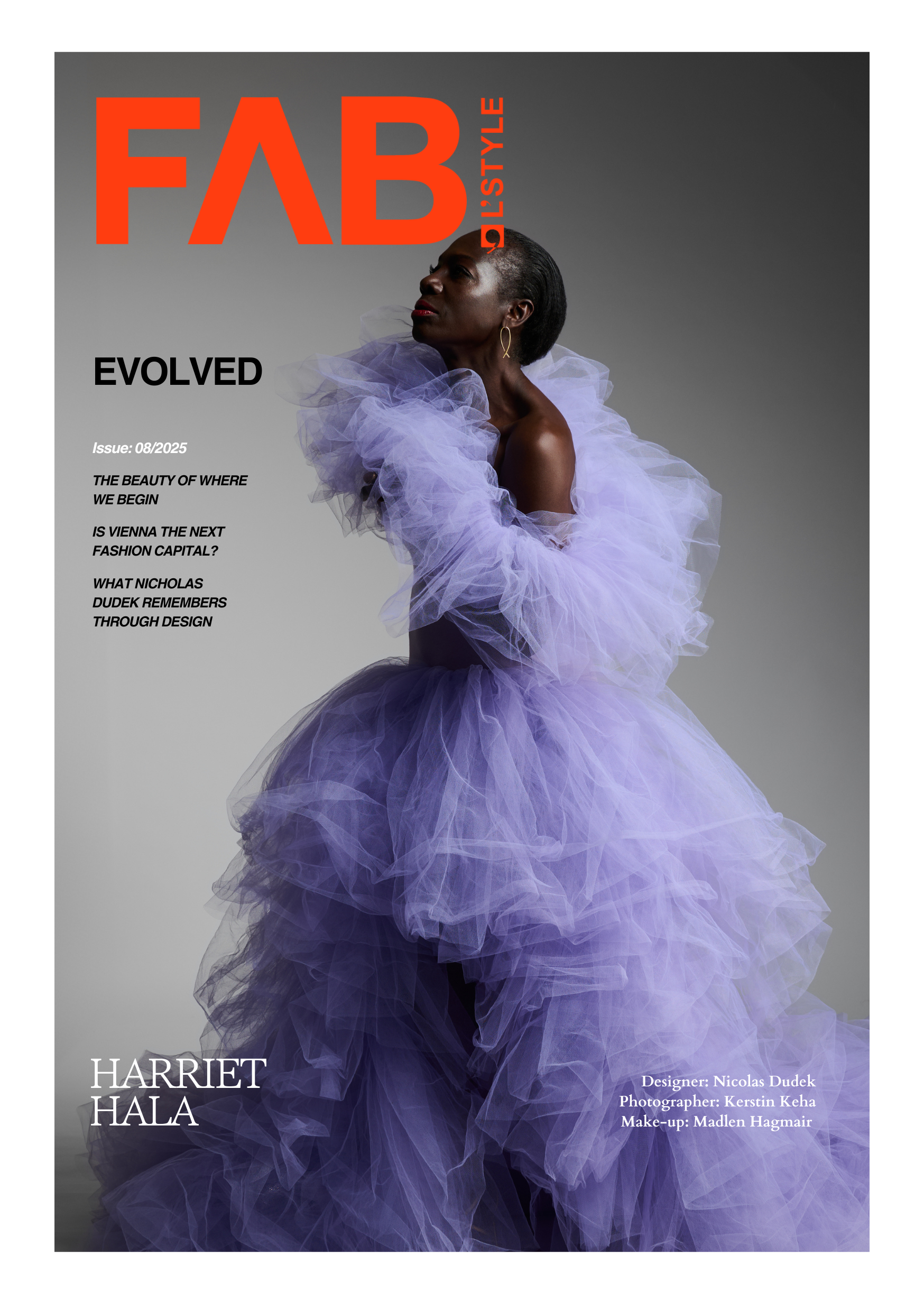Music is being used to recreate identity by 419C, an Igbo-inspired artist who rose to prominence in Vienna’s music scene. His name alone holds weight as his music blends cultural allusions with personal meaning, reflecting a journey of self-discovery, heartbreak, and artistic evolution. 419C, who draws inspiration from R&B, rock, and experimental sounds, isn’t scared to push limitations.
In this exclusive interview, he opens up about his inspirations, the impact of moving between Vienna, Paris, and London, and what the future holds for his sound.
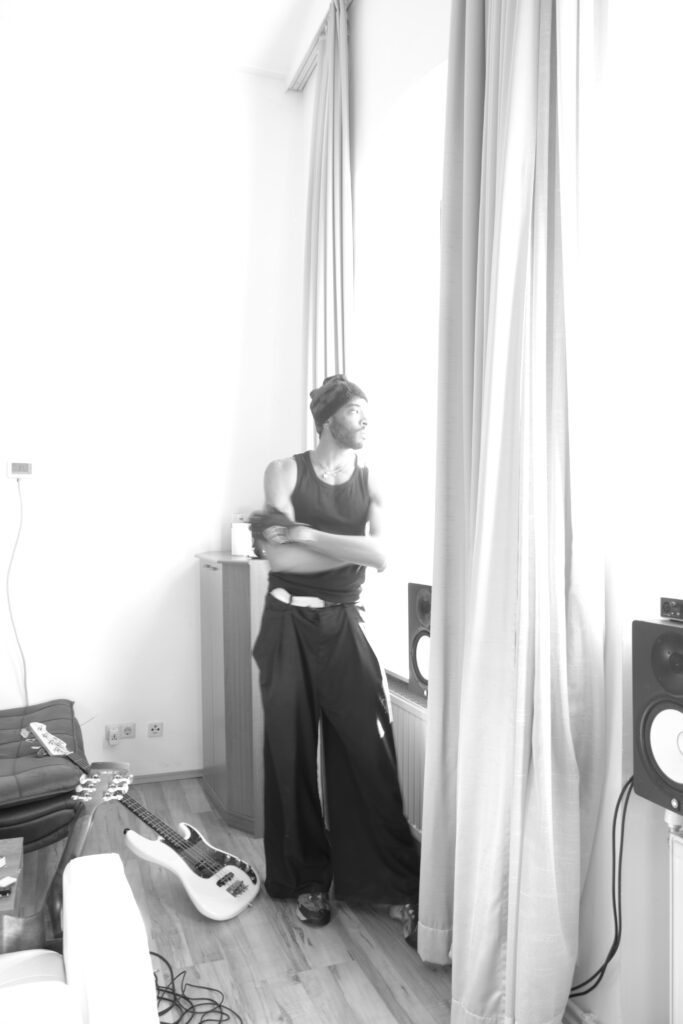
The Meaning Behind “419C” and Its Cultural Connection
FAB: Let’s meet you
419C: I go by 419C, and I’m an artist from Vienna, Austria, with Igbo roots from Nigeria. 419C is more than just a name; it reflects my heritage and identity. I wanted to make that connection clear, so when people see the name, they instantly recognise the roots behind it. The identity is embedded in the name itself.
FAB: What does 419C have to do with Nigeria?
419C: 419 is the Nigerian criminal code for fraud, so it’s a well-known term, especially among Nigerians. It’s more of an insider reference; if you’re Nigerian, you immediately recognise what 419 means.
Some artists incorporate it into their names, like Clint 419, using it as a cultural marker. When you see “419,” you instantly get the reference. It’s not the same as something like a country phone code like using 235; it carries a deeper, more cultural meaning. For me, 419 is paired with “C,” which stands for my name. It’s a personal touch that connects to my identity.
Recommended For You
Globalisation: How Music Unites People Across the World
Best Love Songs to Win a Kiss From Your Lover This Valentine
In Search of Home in Music: Barbara Alli Weaves Fashion, Culture, and Music
Aisha Idirisu Talks Art, Feminism & Finding Her Creative Voice
FAB: How would you describe your music style and how it might evolve in the future?
419C: It’s interesting because I have a clear vision for my next few projects. Right now, this sound is really a testing ground. My music is relatively experimental, but it still falls within the realm of R&B. But I want to take it to a grander scale—make it bigger. I want to incorporate more drums, maybe lean into pop, or even explore elements of rock. But ultimately, I want to bring it all back into the context of R&B and create something fresh and exciting from that fusion.
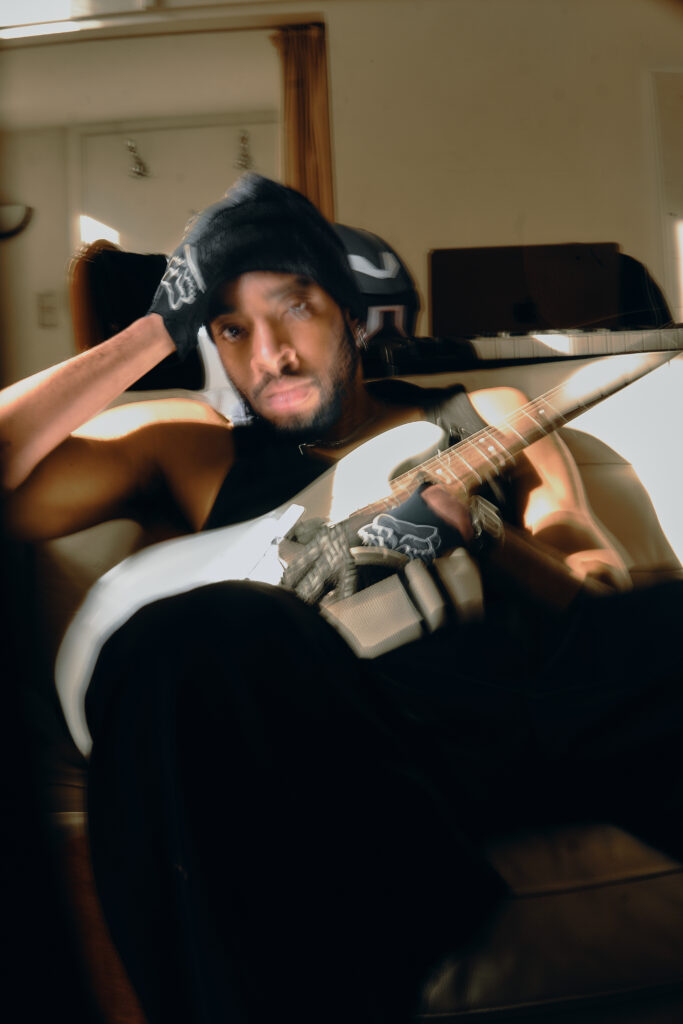
FAB: You just dropped your first two official songs—can you tell us about the creative process behind them and the inspiration behind each track?
419C: The inspiration behind these songs—and most of the songs I’ve written so far—comes from personal experiences and the things I’ve been through in my own life. I find those are the easiest stories to write about because they come from a real place. A lot of my songs revolve around themes of love and heartbreak, which are some of the strongest emotions we experience. Of course, many songs today focus on themes like money, partying, and relationships, but for me, it’s more about capturing the depth of emotions in my work. A big part of my creative process involves living through experiences, reflecting on them, and using music as a form of healing. Writing songs is essentially my way of processing feelings and sharing them for other people to listen to.
Album released on Tuesday, March 25th, 2025.
Release Event on Friday, March 28th, 2025 (Evening)
Location: Syrup Store, Vienna, Austria
FAB: As an artist who’s moved between Vienna, Paris, and London, how would you say these cities have influenced your sound and creative direction?
419C: Vienna, Paris, and London are all very different places, each with its own story. Every city tells a different story, and that’s something I’ve really felt in my music. My song “When I Get Back,” for example, is about constantly moving between cities. I wrote it in 2020, around the time I realised I had to leave Vienna for a different city to do certain things. I needed to be in a different environment to connect with new people, expand my creative network, and push my work forward. That song captures the feeling of wanting to leave, to explore, to find something new.
Now that I’ve lived in different places, my newer songs are shaped by the experiences I’ve had along the way. They reflect not just my own stories, but also the stories I’ve witnessed—I’ve been there, I’ve made this experience with other people, or I’ve seen other people live out these certain stories and experiences that I wouldn’t have seen in Vienna. Travelling really helps and just lets me experience those things more so I can put more into my art.
FAB: How would you say these three places have shaped your approach to music production and performance?
419C: When it comes to performance, I’ve seen a lot of things. Vienna doesn’t have a particularly strong contemporary music culture, so my time in London really opened my eyes to what’s possible. London really showed me what you can do in a musical context—when it comes to shows, when it comes to performances, when it comes to scenography, when it comes to working with different artists collaborating in different ways, and making different visions like scenes as well as incorporating different media forms into your music.
It taught me that a show wouldn’t necessarily only have to be just a singer and a microphone and singing the song and running those down. It could be storytelling where I explain the story with the audience. So I’ll have a verbal communication with my audience. And that’s how I do my crowd work now. But down the line, I’d like to work with scenographers, models, photographers, painters, and sculptors to have different things happening on stage while the show is going on and actually make it a show, not just a musical performance alone.
Production-wise, my sound has always been more influenced by sounds that have come from outside of Vienna. So it’s been a lot of American sounds—talk about LA, talk about Soulection, just different labels and collectives and groups going on and doing contemporary music outside. So, I’ve been able to find those groups again in London and Paris, for instance. I’ve been able to find people who live the same kind of lifestyle in these cities. Less so in Vienna, but they do also exist here.
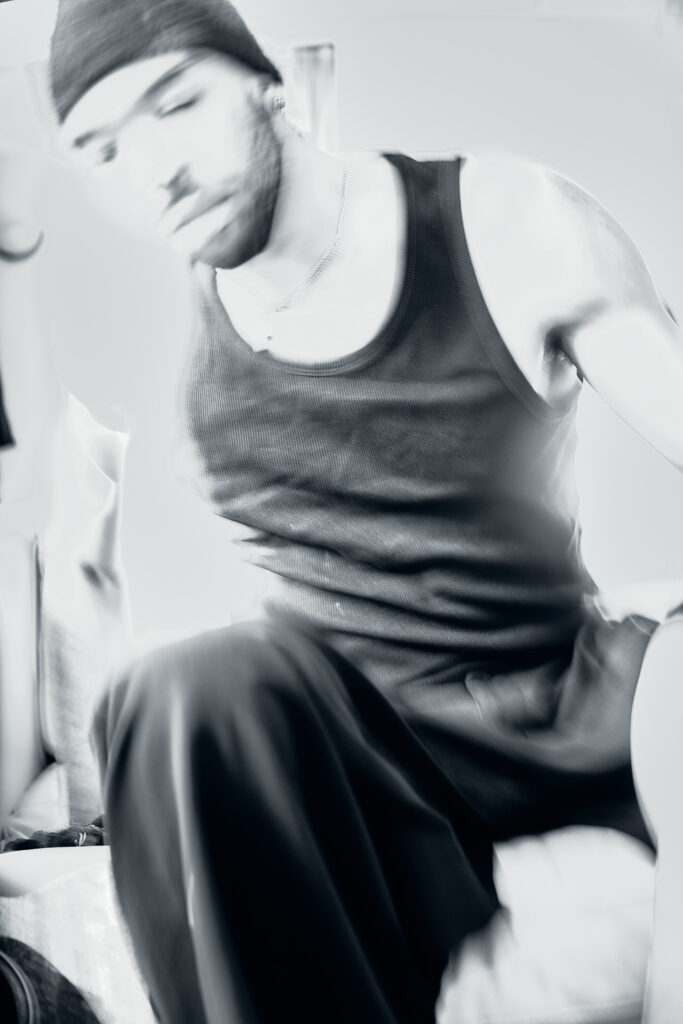
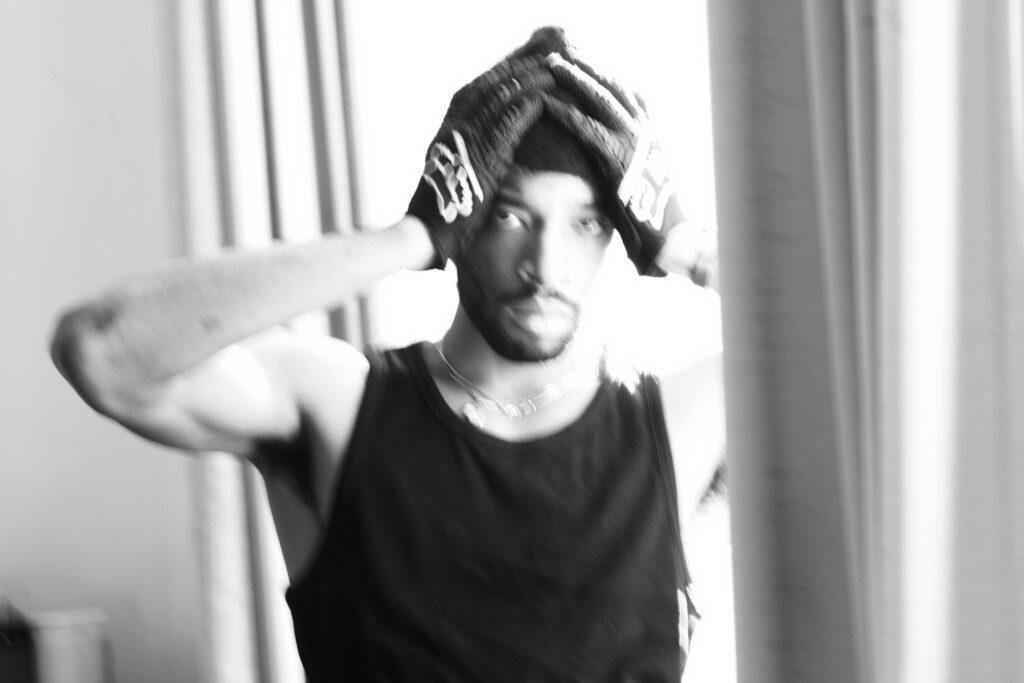
FAB: In each of these three cities, do you have a go-to spot where you feel most creative—whether it’s a place where you make music or simply somewhere that inspires you?
419C: I feel like every city has its own special spot. And like I said, the biggest part of making music that truly touches people comes from experiencing and living life. That applies to art in general. A huge part of creating is simply living. In Paris, for example, I found this shop where I made amazing friends and connected with amazing people from all kinds of backgrounds, including many musicians. We pushed each other, supported one another, and built something together.
In London, I discovered Orii Jam, a place with these incredible live shows. That’s where I made my first connections in the city. When I first arrived, I didn’t know a single person. But through Orii Jam, I met Fabiano (Osquello), who was one of the first to bring me into the scene. Then there was Nasty Brian, the Victory Lap group, and so many others, even beyond my usual musical circle. And honestly, the 149 bus—the legendary 149 bus. It runs from Liverpool Street to Clapton. I made some of the most unexpected but lifelong connections just riding that route. It’s interesting how life works sometimes.
FAB: In general, what are some of the artists and genres that have actually influenced your music style so far?
419C: Soulection Collective. Back in 2015 and 2016, they were a powerhouse—a birthplace for so many artists who are huge now. If you look at Brent Faiyaz, Gallant, and so many others, a lot of them came up through Soulection. They really fostered a space for new, forward-thinking music to thrive. Things have changed a lot since then—TikTok, streaming, all of that. But back in the day, the SoundCloud wave was massive for that kind of movement. And of course, you have the classics—Frank Ocean, that timeless Frank Ocean energy. And as a kid? Michael Jackson, no question. Those are the foundations.
FAB: Do you have any specific memories or experiences that inspired the most recent tracks?
419C: I wrote all of them in February. The thing is, a big part of my writing process is just experiencing life. When I go through something deeply emotional or powerful, turning that into music happens naturally—it flows effortlessly. So, when I had those experiences, I was able to go into the studio, write the songs, and complete the entire album in about a month. But that’s because the emotions were real, lived, and deeply felt. You can hear that reflected in the songs themselves.
419C: All I can say is—it’s a girl. But girls bring so much into your life. They add new experiences and new perspectives. It’s a beautiful thing because if you’re open to it, it can completely stir things up in ways you never expected. And in that stir, you start to find yourself. That process—making sense of it all—is where inspiration comes from.
FAB: As a new artist, what do you find most exciting and challenging about entering the music industry?
There are a lot of challenges in music, in any industry, but you just have to be up to taking them. Everything is challenging in some way—it’s really about how you navigate those challenges. And once you start doing that, they stop feeling like challenges because you’re actively working through them. For me, one of the biggest challenges has been being based in Vienna and finding a cultural space that truly fits me. When I started releasing music at 18, I was mainly putting music out in Vienna. But over time, I realised that the world is so much bigger. You’re not limited to one place—you can take inspiration from everywhere and push your work to anywhere. Another major challenge, and one that took me a while to accept, is understanding that being an artist today also means being involved in marketing and business.
For the longest time, I saw myself strictly as an artist—I wanted nothing to do with the business side. But eventually, I had to accept that it’s an essential part of the process. Once I embraced that, things started to shift in a real way.
FAB: And what can we expect from you this year, collaboration-wise and performance-wise?
419C: I’m hoping to be working with friends in different countries. I’m hoping to perform overseas. That’s fingers crossed, though. And for the next project, there’s going to be a whole new sound. So I’m looking forward to making it.
Photo credit: Rod Mambakasa











